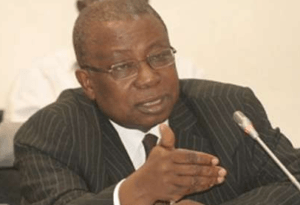Health Minister says malaria vaccine is safe

Mr Kwaku Agyemang-Manu, the Minister of Health, has advised parents to allow their children, below two years, to be vaccinated against malaria to stimulate nation’s efforts to eradicate malaria in the country by 2030.
He emphasised the malaria vaccine remained safe, effective and well tolerated and had no debilitating consequences on the health of children.
Mr Agyemang-Manu gave the advice when speaking at the launching of the expansion of the malaria vaccine implementation programme in Sunyani, on the theme: “malaria vaccine for additional treatment.”
The Ghana Health Service (GHS) with support from its partners, including GAVI, PATH, and WHO, is implementing the pilot programme in parts of the country.
Mr Agyemang-Manu explained that vaccination not only protected and saved the lives of children, but also remained one of the most cost-effective public health interventions and the best way to help children survive.
Considered to be the cornerstone of public health care, the Health Minister said globally vaccination saved three million children from childhood diseases every year, and urged caregivers and parents to capitalize on the programme and vaccinate their eligible children.
In a speech read on his behalf, Dr Francis Kasolo, the WHO Representative to Ghana, said the “malaria vaccine is a welcome addition to the malaria control toolbox and will offer endemic countries the opportunity to rapidly reach children in the most vulnerable places with an effective intervention through the routine immunisation platform.”
So far, he said, about 1.5 million doses of the malaria vaccine had been administered across 42 districts in Ghana, reaching over 440,000 children with at least one dose and with over 175,000 children completing the fourth dose.
This is a commendable achievement for Ghana and for Africa, Dr Kasolo stated, saying the malaria vaccine introduction programme has shown that the vaccine remained safe, feasible and could be implemented through routine childhood immunisation together with other malaria control interventions.
Dr Patrick Kuma-Aboagye, the Director General of the GHS, said the malaria vaccine reduced the number of times a child gets malaria, including severe malaria and reduced child deaths as well.
He explained children get the first dose of the vaccine from six months of age and the final dose at 18 months, a departure from the previous schedule of 24 months for the final dose.
The new schedule is, therefore, six months, seven months, nine months and 18 months, Dr Kuma-Aboagye explained, saying to get the maximum protection, a child must receive all the four doses.
Source: GNA
